New Vauxhall Ampera boasts top eco-electric car tech
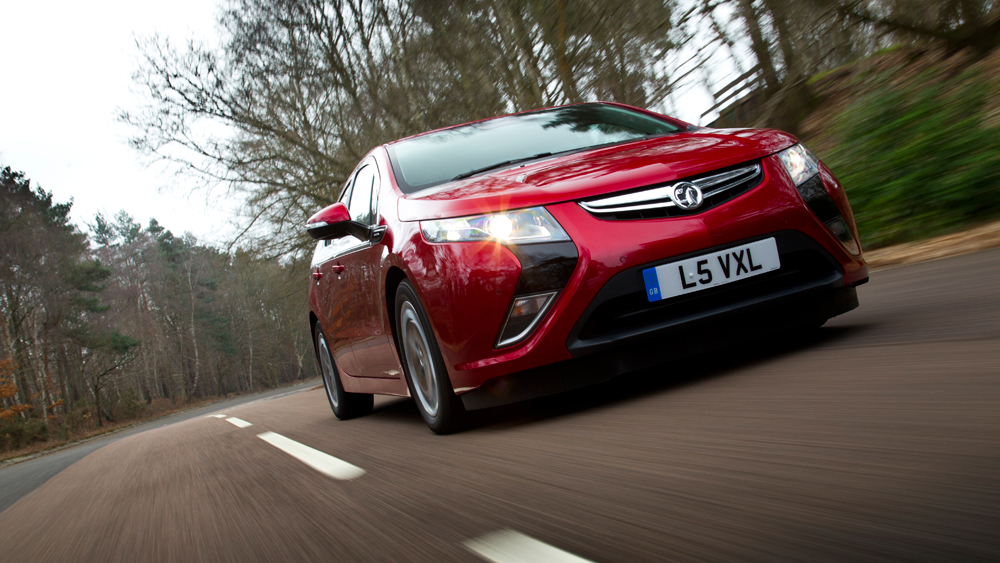
Sign up for breaking news, reviews, opinion, top tech deals, and more.
You are now subscribed
Your newsletter sign-up was successful
When it comes to cars, eco-electrics are about as sexy as a brick, but underneath their bland exteriors there's a lot of great tech that goes into powering these increasingly sophisticated machines.
Now, electric vehicles are being pushed as the next evolution of the humble car, including the stylish-looking Vauxhall Ampera, which we recently had the pleasure of driving in this year's Future Car Challenge with British Gas.
Range-extended electric vehicle
The Ampera is no ordinary eco-car; it's essentially the best of both worlds - a super-efficient fossil-fuel guzzler and an electric car combined.
It's a range-extended electric vehicle, which means it has a 1.4L petrol engine. But unlike a hybrid such as the Toyota Prius, it's only used to generate electricity, not to drive the wheels directly under normal driving modes. That essentially means the engine can run at peak energy efficiency all the time, and isn't dictated to by your lead foot.
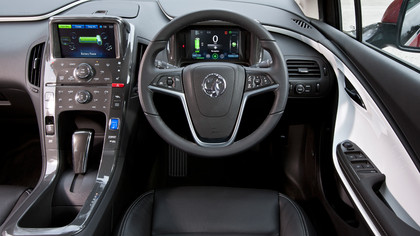
The Vauxhall Ampera's eco-tech toys don't stop there though. Four different driving modes are available - Normal, Sport, Hold (petrol engine on all the time) and Mountain, for a bit more power going up steep hills.
Like most modern electric vehicles, it also has a regenerative braking system similar to the KERS of current F1 cars, which uses the electric motor to slow the car and generate electricity in the process.
It charges the battery as you brake, giving you free mileage. In practice, it's a very surreal experience, since you barely ever need to use the brake pedal unless you're coming to a complete stop.
Sign up for breaking news, reviews, opinion, top tech deals, and more.
In-car gadgets
Inside the cabin, the Vauxhall Ampera is kitted out with all manor of electrical gadgets - let's face it, an electric car is just one giant battery-powered gadget in and of itself.
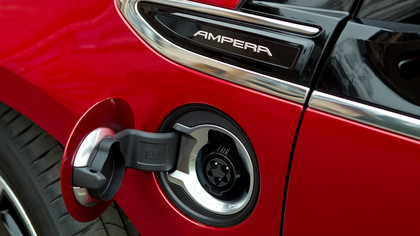
The usual suspects are all there, including such highlights as a 7-inch touchscreen centre-console with more buttons and sensors than you can shake a stick at.
There's also a second 7-inch touchscreen instead of dials, 3D street-level sat nav, a CD/DVD/DAB radio with iPod control, electric climate control, cruise control, parking sensors and a handy rear parking camera.
When it comes to eco-friendly driving, the car's also kitted out with an incredibly addictive smart monitor, which is displayed on the driver's in-dash screen. It's essentially a ball that floats within a tube-like graphic.
Hard acceleration sends the ball shooting one way, while heavy, non-regenerative braking sends it the other. The idea is to try to keep that ball nice and central, which leads to the most energy efficient driving.
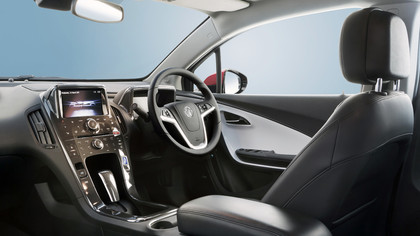
It's further enhanced by driving reports, which are flashed up on the big centre-console screen for all to see. It rates your driving efficiency, giving you a percentage score for your current journey, making the mundane of eco-friendly driving into a bit more of a challenge and an exercise in precise control.
In fact, if anything, you end up looking down at the in-car screens more than the road, so perhaps it would have been a tad better as a heads-up display projection onto the windscreen.
Power
One of the biggest potential drawbacks of any electric vehicle is range anxiety and charge time. Of course, the Vauxhall Ampera negates range anxiety through the back-up petrol-electric generator, but it'll also enable you to plug the car in and charge the battery directly, giving you around 40 miles of regular all-electric driving.
Your standard at-home charging station pumps out 16 amps, which sees the battery charged in about six hours, or overnight for most. If you're in a hurry at home, you can up the current to 32 amps - the more current you have flowing, the faster the battery can charge.
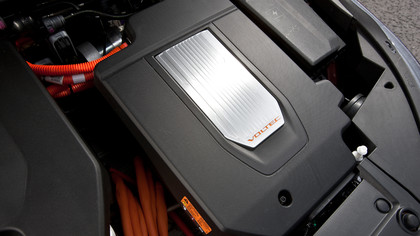
If, however, you're out and about and in a rush, there are new DC charge stations starting to pop up in the UK. These aren't the kinds of things you'll find installed in personal homes, but a DC fast charger pumps out somewhere in the region of 300 to 600 volts and hundreds of amps.
It should do you a full charge in about 30 minutes or less - time enough to get a coffee while you're powering up for the road.
The evolution of the car will undoubtedly be some sort of electric vehicle, but if they end up being something akin to the extended-range electric cars such as the £30,000 Vauxhall Ampera, the future of car tech is certainly looking bright.